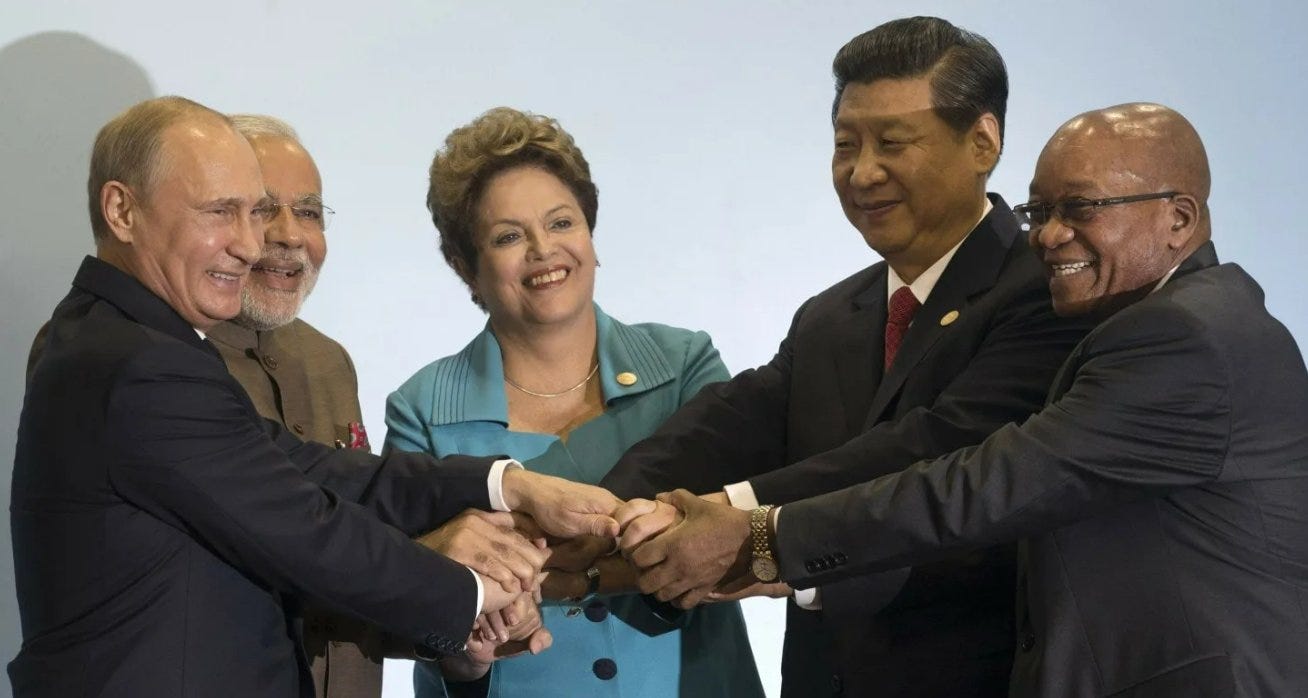BRICS New Development Bank: Analyzing Challenges and Opportunities Under Dilma Rousseff's Leadership
How Dilma Rousseff's leadership in the New Development Bank can navigate complex geopolitics, promote sustainable development, and drive collaboration among member countries?
The New Development Bank (NDB), formerly known as the BRICS Development Bank, is a multilateral financial institution established in 2014. Its primary focus is to finance projects related to energy, infrastructure, sanitation, and environmental protection in BRICS member countries and other developing nations. Recently, former Brazilian President Dilma Rousseff was elected as the President of the NDB. This appointment has brought attention to the current state of the NDB and the challenges it faces in today's global economic order.
Geopolitical Challenges Impacting the NDB
The NDB operates in a complex and increasingly competitive geopolitical landscape. Tensions between China and India over border issues, as well as the ongoing Ukraine-Russia conflict, have affected the NDB's operations. Russia's negotiations within the NDB have been frozen since March 2022, resulting in a total exposure of $1.8 billion to entities based in Russia. Additionally, the bank relies on external financing mechanisms, such as issuing debt securities in national and international capital markets. The ongoing conflict and US sanctions on Russia have hindered the NDB's ability to seek foreign funds.
Expansion of NDB Membership and the Role of Local Currencies
One of the NDB's main objectives is to consider the admission of new members. Over a dozen countries have expressed interest in joining the economic group, including Afghanistan, Argentina, Indonesia, and Saudi Arabia. The NDB aims to expand projects financed in local currencies, which supports China's global campaign to internationalize the renminbi (RMB). Emerging countries are increasingly interested in using RMB in trade transactions with China to reduce transaction costs associated with using an intermediary currency.
The Petro-Yuan and Its Implications for the NDB
Major oil exporters to China, such as Russia, Iran, UAE, and Angola, are increasingly using RMB in transactions. These countries, collectively known as the petro-yuan or petro-rmb group, are seeking cooperation beyond energy, including technology provided by China. Recent negotiations between China and Saudi Arabia, the leading oil exporter to China, indicate that the use of RMB in oil agreements may become more common. These developments could spread to areas beyond oil trade, as countries find more common ground with Beijing than Washington.
Internal and External Tensions Affecting NDB Cohesion
Various intra and extra-BRICS tensions, as well as domestic issues, may continue to impact the cohesion of the NDB. Current and potential members face internal challenges, such as unstable economies, diplomatic isolation, differing levels of economic development, and geopolitical rivalries. These issues could make it difficult for governments to maintain internal cohesion and potentially hinder the NDB's pursuit of foreign funds.
Addressing Challenges and Leveraging Opportunities for the NDB
Despite the divergent aspects among BRICS members, they must focus on supporting converging points to fulfill the BRICS' promise of a more just world order. Attracting new members to the NDB and leveraging the bank's agenda and economic resources should be approached as a strategy to reduce friction between members, find alternatives to address Russia's complex situation, and promote the image of a worthwhile initiative to join.
The Importance of Strong Leadership for the NDB
Under Dilma Rousseff's leadership, the NDB must be prepared to face these challenges head-on and develop strategies that ensure the bank's success. Strong leadership is essential in guiding the NDB through these complex issues and fostering collaboration among member countries. Rousseff's experience as Brazil's President could prove invaluable in navigating the geopolitical landscape and finding common ground among diverse member states.
Building Bridges and Fostering Collaboration
The NDB must prioritize building bridges between its members and fostering collaboration to achieve its objectives. This can be done by creating platforms for dialogue, exchanging best practices, and promoting joint projects that benefit all members. Additionally, the bank should explore partnerships with other multilateral development institutions and international organizations to leverage their expertise and resources.
Promoting Sustainable Development and Green Initiatives
Sustainable development is at the core of the NDB's mission. The bank must focus on financing projects that promote environmental protection, clean energy, and sustainable infrastructure. By doing so, the NDB can help member countries transition to a low-carbon, resource-efficient economy and contribute to global efforts to combat climate change.
Enhancing Transparency and Accountability
To build trust and credibility, the NDB must ensure transparency and accountability in its operations. This includes adopting robust governance frameworks, sharing information on project selection and implementation, and conducting regular assessments of its performance. By demonstrating a strong commitment to transparency and accountability, the NDB can attract more investors and increase its funding capacity.
Adapting to the Evolving Global Economic Landscape
As the global economic landscape evolves, the NDB must remain agile and adaptable to new trends and challenges. This could involve exploring innovative financing mechanisms, such as green bonds and blended finance, to mobilize additional resources for its projects. Furthermore, the bank should closely monitor global economic developments and adjust its strategies accordingly to remain relevant and effective in fulfilling its mission.
In summary, the New Development Bank, under Dilma Rousseff's leadership, must confront the challenges posed by the complex geopolitical environment, expand its membership, and utilize local currencies to finance sustainable development projects effectively. By focusing on strong leadership, fostering collaboration, promoting sustainable development, enhancing transparency, and adapting to the evolving global economic landscape, the NDB can strengthen its role as a crucial player in the global economic order and contribute to a more just and equitable world.



